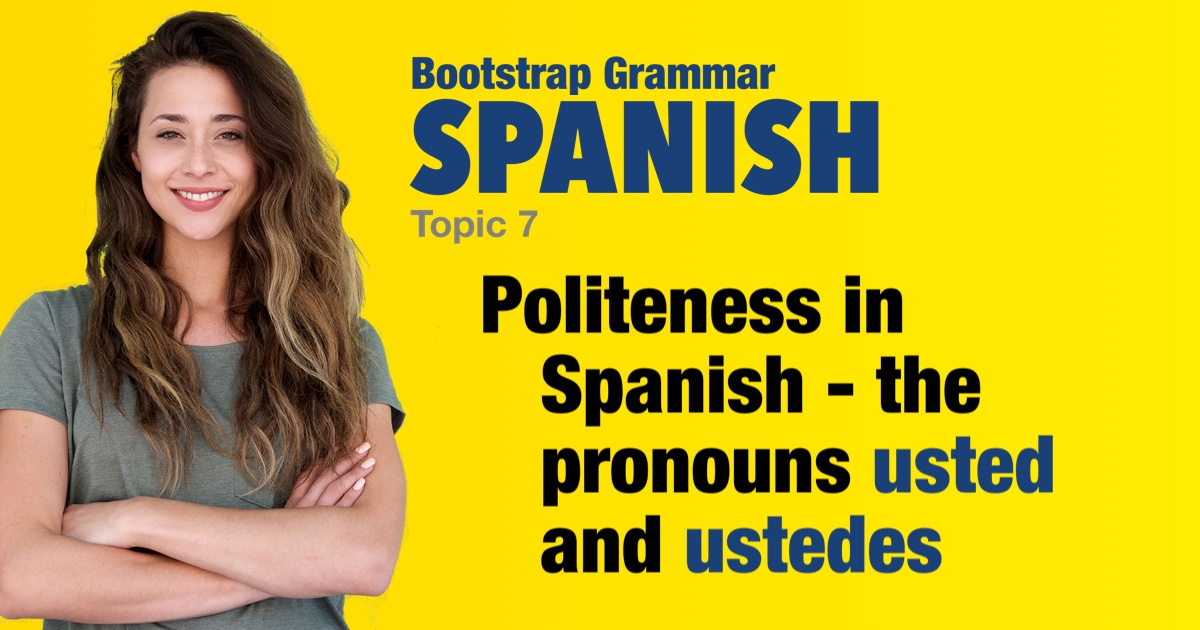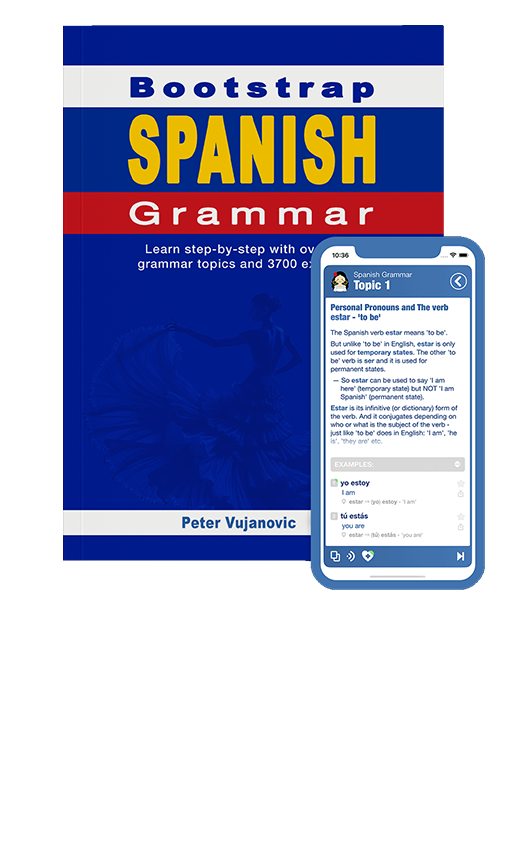Spanish grammar - Politeness in Spanish - the pronouns usted and ustedes |
|||
|
|||
In Castilian Spanish, polite or formal pronouns are used to show respect, politeness, or formality when addressing someone or a group of people. These pronouns are particularly important in professional, formal, or respectful settings. • usted is used to address a single person formally. It is the formal form of the familiar tú. -- The usted conjugation of estar is está. And its ser conjugation is es. • ustedes is the plural form and is used to politely address a group of people. It is the formal form of the familiar vosotros & vosotras. -- The ustedes conjugation of estar is están. And its ser conjugation is son. |
| Examples: | |
|
¿Dónde está usted?
Where are you (formal, singular)? |
|
|
Usted está lejos.
You (formal, singular) are far away. |
|
|
Usted está cerca.
You (formal, singular) are close. |
|
|
¿Dónde está usted?
Where are you (formal, singular)? |
|
|
¿Por qué no está usted aquí?
Why are you (formal, singular) not here? |
|
|
Ustedes son estudiantes.
You (formal, plural) are students. |
|
|
Ustedes son amables.
You (formal, plural) are kind. |
|
|
¿Son ustedes españoles?
Are you (formal, plural, masculine) Spanish? |
|
|
Ustedes no son estadounidenses.
You (formal, plural) are not American. |
|
|
¿Dónde están ustedes?
Where are you (formal, plural)? |
|
|
Ustedes están aquí.
You (formal, plural) are here. |
|
|
Ustedes no están lejos.
You (formal, plural) are not far away. |
|
 |
|


